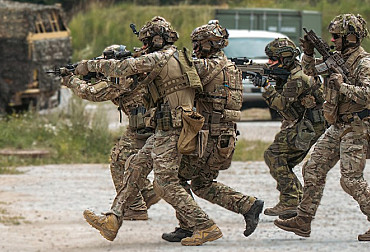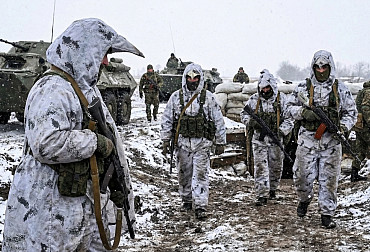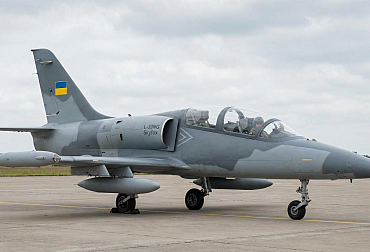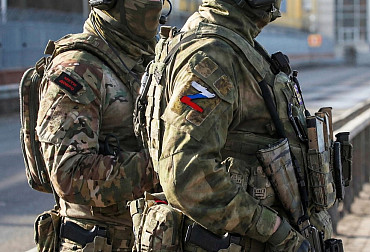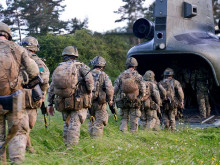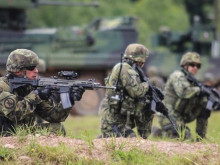Defence Committee discusses European proposal on collaborative procurement
On Wednesday, 20 October, the Defence Committee of the Chamber of Deputies had on its agenda, in addition to information on overflights and passages of foreign armed forces through the territory of our Republic, on the participation of our soldiers in foreign exercises and the participation of soldiers of foreign countries in exercises in our country, above all, a proposal for a regulation of the European Parliament (EP) and the Council, by which the European Union wants to strengthen the defence capability of the Member States in the context of the deteriorated security situation. The standard, which began to be prepared at the beginning of the Czech EU Presidency, aims to support the replenishment of necessary military equipment and ammunition through joint purchases, to which it wants to motivate Member States by a financial contribution to cover administrative costs.
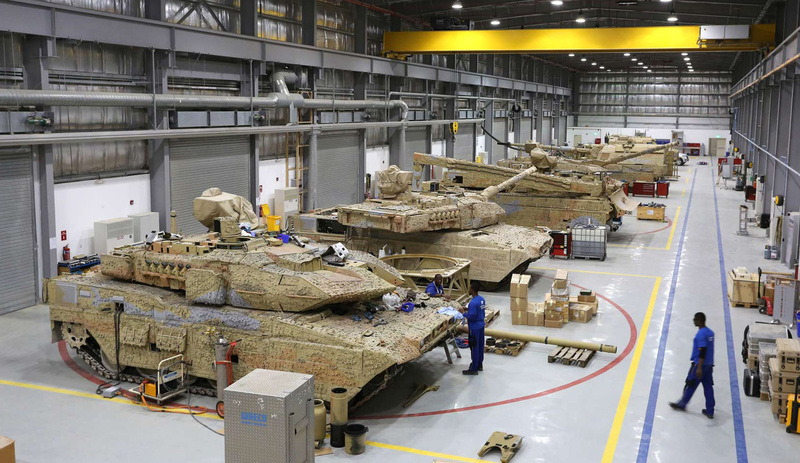 Picture: The proposal discussed and noted by the Defence Committee creates an instrument to strengthen collaborative defence procurement and, through related EU funding, to strengthen the capabilities of the EU defence industry and the European defence technological and industrial base. (illustrative photo) | KMW
Picture: The proposal discussed and noted by the Defence Committee creates an instrument to strengthen collaborative defence procurement and, through related EU funding, to strengthen the capabilities of the EU defence industry and the European defence technological and industrial base. (illustrative photo) | KMW
In the preamble to the proposal for an EP and Council regulation ("establishing an act to strengthen the European defence industry through collaborative procurement"), we read: "On 11 March, EU Heads of State and Government committed themselves at the Versailles meeting to "improve Europe's defence capabilities" in the context of Russia's military aggression against Ukraine. They agreed to increase defence spending, strengthen cooperation through joint projects and collaborative procurement in defence capabilities, close gaps, promote innovation and strengthen and develop the EU defence industry."
The proposal under discussion, which was taken note of by the Defence Committee, creates an instrument to contribute to strengthening collaborative defence procurement and, through related Union funding, to strengthening the capabilities of the EU defence industry, the European defence technological and industrial base. The proposal comes at a time when, in the wake of the Russian aggression against Ukraine, individual countries are significantly increasing their defence budgets while seeking to accelerate the acquisition of military equipment, often of related parameters. Demand then exceeds production capacity and one of the consequences is high inflation and extended delivery times. At the same time, manufacturers may prefer large volume orders to small ones, which may be to the detriment of smaller countries, which are often geographically closer to the ongoing conflict.
This is intended to be a short-term instrument, whereby at least three countries come together to form a 'consortium' for the purpose of joint procurement and appoint a procurement agent to act on their behalf. The EU will support these joint purchases with a total of €500 million while the instrument is in force until the end of 2024. The funds are not intended for the purchase of military equipment itself, but for the administrative costs that the individual countries will incur with joint purchasing. The purpose is to encourage Member States to make joint purchases, which should help both the defence industry to adapt more quickly to the new situation and the Member States and their armed forces, which will be able to obtain better conditions thanks to the volume of contracts.
In the next part of the 17th part-session, MEPs discussed "information on flights and passages of other countries' armed forces through the territory of the Czech Republic in the first half of 2022," which the government approved at the end of August. Deputy Defence Minister Tomas Kopecny told MPs that in the first half of the year there were a total of 4,037 airlifts, including 434 charter flights, and 144 landings by the armed forces of other states. There were 839 separate movements by land, eight road movements and five rail movements. Beyond this, 22 special permits were issued for aircraft of other states not included in the original government-approved list. These flights included two flights by Russian aircraft that took place in January, before the February aggression against Ukraine. General Řehka added that the number of ground movements had increased by 611 compared to the previous period, mainly in connection with participation in exercises and the strengthening of NATO's eastern flank, in particular the creation of a multinational battle group in Slovakia. The MEPs were also informed about the 'Government Decision on flights and passages of armed forces of other states through the territory of the Czech Republic in 2023', and in other items about the participation of Czech armed forces in foreign exercises and the participation of foreign armed forces in exercises in the Czech Republic.
According to the Chief of the General Staff, Major General Řehka, military exercises are a key tool for the acquisition, creation and development of capabilities that the units of the Czech Armed Forces must possess. They are a necessary part of preparation for operations and contingency forces of international organisations. Exercises with foreign partners increase interoperability of forces and serve, among others, as a check on the effectiveness of capability development. In his words, it is also, in a way, a tool to deter a potential adversary. The activity of the exercise itself plays a role in strategic plans and is part of communication.











